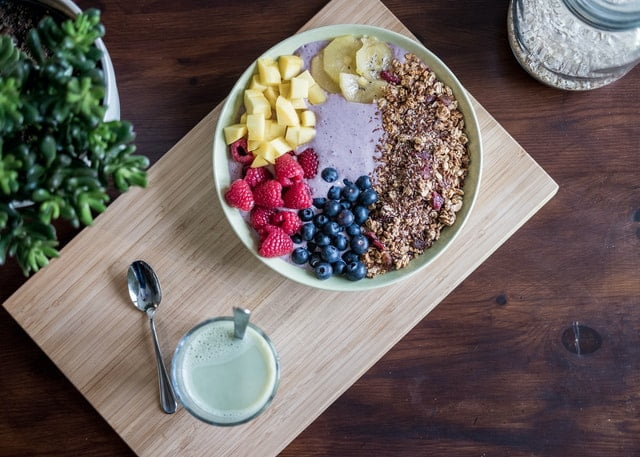
Today is Mental Health Awareness Day. In my previous blog, I spoke about the microbiome and its importance to our health: our gut impacts all bodily systems, and particularly our mental health.
Mental health problems have risen dramatically in the last few years and are affecting both individuals and healthcare providers. Allopathic medicine offers a range of solutions to support mental health issues through medicinal drugs and therapies. However, many of my clients suffering from these have been struggling for years and are keen to explore other more natural alternatives. And the good news is that there are things that can be done.
Mental health issues cover a wide range of symptoms with common ones such as anxiety, mood imbalances, headaches, migraines, sleep problems, stress, depression, lack of focus, poor memory, poor resilience to life’s challenges, inability to cope, etc to more serious ones such as schizophrenia, bipolar disorder, personality disorders, eating disorders…
Many of these are much more common than we think and can happen to anyone at anytime. As such it is important not to stigmatise them and realise that there are many things that can be done to relieve them. It is important to tackle them as they can affect many aspects of our lives such as our sleep, our self-esteem, our appetite and our physical health (hormones, immunity…).
Before diving into them, let’s discuss a little bit more why and how our gut can impact our mental health.
Why and how our gut can impact our mental health?
As discussed in previous blogs, our gut houses 100 trillion of bacteria, our microbiome: these gut bacteria are influenced by what we eat, our environment and our lifestyles. Healthy gut bacteria allow the production of neurotransmitters such as serotonin, dopamine and GABA (gamma-aminobutyric acid) which are all essential for brain function by playing an essential role on our mood. Our gut is lined with millions of neurons, part of the so-called enteric nervous system which has lead many researcher to call it our “second brain”. This explains why we have stomach ache or bowel issues before facing a public talk where the stress of the event has a direct impact on our physiology. The growing field of neurogastroenterology will no doubt bring us more and more light on this fascinating subject.
Intestinal permeability, also known as “leaky gut”, allows large molecules (such as bacteria, undigested foods, toxins…) to go through the tight junctions of our gastro-intestinal tract. These then reach our bloodstream and trigger an immune reaction causing inflammation. The gut and the brain are connected via the vagus nerve in a bi-directional way – this is called the gut-brain axis (the technical term being HPA axis) – meaning that an inflamed gut leads to an inflamed brain, setting in motion all sorts of digestive (bloating, bowel issues, weight problems, pain and/or discomfort) as well as mental issues as listed above. This bi-directional way also means that the state of our mental health will impact our digestive functions potentially leading to poor digestion and low absorption causing many health issues.
Some of my clients who came to me with issues such as low mood, migraines or anxiety have seen dramatic improvements in the severity and frequency of their symptoms by following my gut-supporting protocols. By supporting our gut and more specifically our friendly gut bacteria, we support our mental health and vice versa: it is therefore paramount for our overall wellbeing.
How can we support our gut to benefit our mental health?
- Eat a diverse & nutrient-rich anti-inflammatory diet high in fibre, fruits & vegetables, good quality proteins and healthy omega-3 fats (oily fish, nuts, seeds, olive oil)
- Avoid or eliminate refined/processed foods high in sugar & salt (cakes, cookies, ice cream, white bread/pasta/rice, sugary foods) as well as alcohol, caffeine, foods with nitrites or MSG. Swap alcohol for water: alcohol leads to inflammation in the gut by destroying our beneficial bacteria. It is therefore recommended to keep intake at a minimum and opt for water or non-alcoholised drinks instead
- Include fermented foods (probiotics) such as full-fat yogurt, kefir, sauerkraut/kimchi, kombucha, miso, tempeh and pickled foods in your diet
- Eat prebiotic foods such as asparagus, garlic, artichoke, legumes, onion, leek…Prebiotics feed your beneficial gut bacteria
- Reduce stress: stress has a direct impact on the diversity of our microbiome, therefore finding strategies to reduce it is essential. There are many strategies to reduce stress and this will be a very personal choice but something as simple as going for a gentle walk outdoor everyday can reduce cortisol levels and bring a sense of calm. Other options can include: yoga, meditation, tai chi, breathing exercises, cooking, singing, laughing, spending quality time with friends & family, listening to music, running…
- Increase exercise: exercise boosts levels of “good” bacteria, thus strengthening our microbiome. It also boosts our endorphins, the “happy” hormones, improving our mood & thus making us feel happier
- Ensure good sleep: poor sleep also affects the composition of our microbiome and leads to a raft of health issues. Putting in place a daily sleep routine as well as implementing relaxing activities prior to bedtime can help to bring the calm conducive to good sleep
- Supplements: sometimes, it is also necessary to take certain supplements to support our gut microbiota. This will depend on your symptoms and circumstances and therefore I recommend you consult a nutritionist to decide on the right ones for you
So supporting the health of our gut is fundamental to supporting our mental health.
If you suffer from any of the symptoms mentioned in this blog and would like to discuss additional support, feel free to get in touch with me here or call me on 07788 444 199 and we can discuss ways to help you.